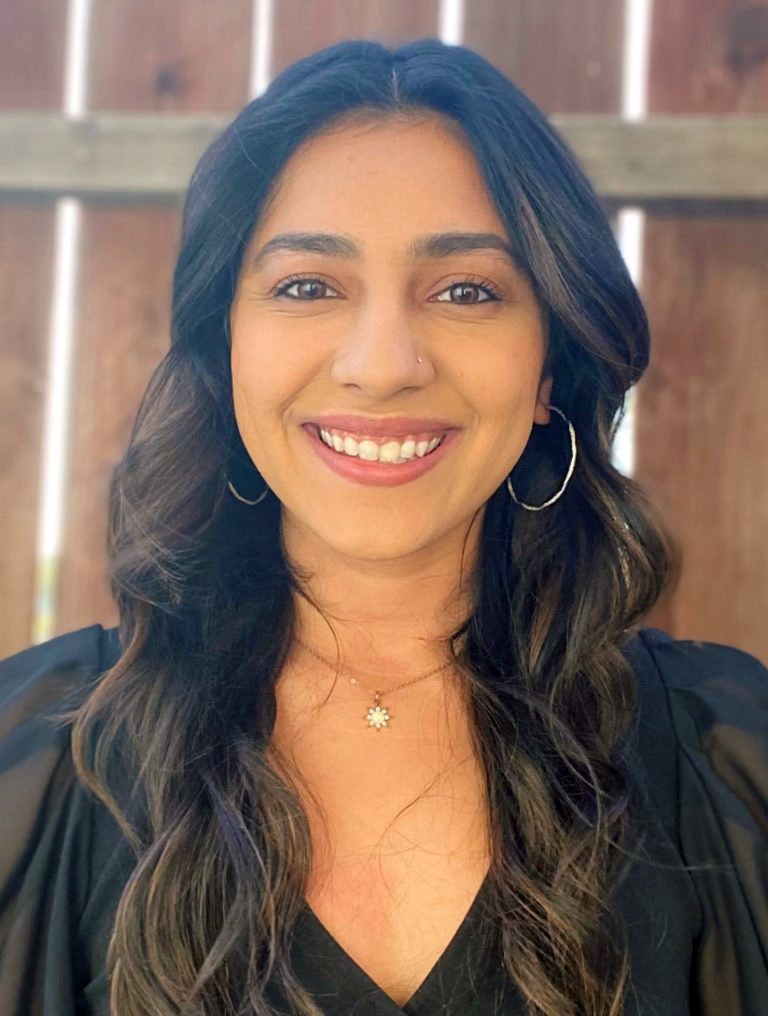 Tasmia Moosani
Tasmia MoosaniIn high school, Pitzer College residence director Tasmia Moosani dreamed about going to college but didn’t know how to get there.
“I was a first-gen, low-income Pakistani Muslim student—resources in my home, community and my school were minimal,” Moosani said. “We didn’t have college counselors or anyone saying, ‘Hey, you should be going to college, have you thought about it?’ It was me and a friend trying to figure it out together.”
Ultimately, she found her way to college and beyond, graduating from the University of California, Irvine, with a degree in business economics and international studies and earning her master’s degree in student development administration at Seattle University.
As a first-generation college student, she looked back on her experience in high school and decided someday, somehow, she would help students like herself realize their own educational aspirations and learn how to take advantage of resources they may not know about because no one has told them they are available.
“I wanted to go back to my community and find those students who may not have had anyone tell them that they are capable of so much and don’t have any guidance,” she said. “I feel like one person believing in you can make all the difference.”
Soon after she started her job at Pitzer in June 2019, she decided to reach out to girls from low-income communities who shared some of her own experiences growing up. She went to mosques and schools around the San Fernando Valley. She talked with high school counselors and posted flyers that invited students to call or email if they wanted to learn more about applying to college. All her consultations were free.
Almost immediately, she received more than 30 emails.
“I was shocked,” she said. “It made me happy, but it also made me a little sad—it underscored how much need is out there.”
The demand quickly outweighed supply—Moosani was doing everything on her own to provide guidance to high school students during the off-hours of her full-time job at Pitzer. She realized she couldn’t meet with everyone who contacted her, so she focused on juniors and seniors who needed immediate help with the college application process. Some needed only a couple of sessions, others needed more time to figure out next steps.
During these sessions, Moosani shared her own experience applying for colleges and what she learned about support for low-income students, from waived application fees to financial aid. For students interested in first going to community college, she outlined information about what it takes to transfer credits to a four-year school. Since the pandemic struck, she and many of the high school students she advises have taken virtual tours of college campuses together.
Drawing on her own experiences, Moosani helped facilitate conversations between high school students and their parents about college. For some, English was a language barrier; for all, the biggest concern was how to pay for higher education.
“So many of these students are straight-A students at the top of their class. I would tell their parents, trust me, there are ways to help get your student’s college education funded,” she said.
As word spread about her initiative, Moosani heard about private grants that were sometimes awarded to help fund workshops in the community. She applied for a $10,000 grant; ultimately, thanks to an anonymous donor and other supporters, Moosani received a nearly $50,000 grant that will help cover expenses for the program over the next three years.
With the funds, she hopes to expand the program, bring on other counselors, and ultimately include support for students after they go to college. For now, she’s happy to be able to provide the kind of guidance she didn’t have in high school.
“It’s been amazing,” she said. “I feel like just what I’ve been able to do so far, it’s going to be close to my heart forever.”